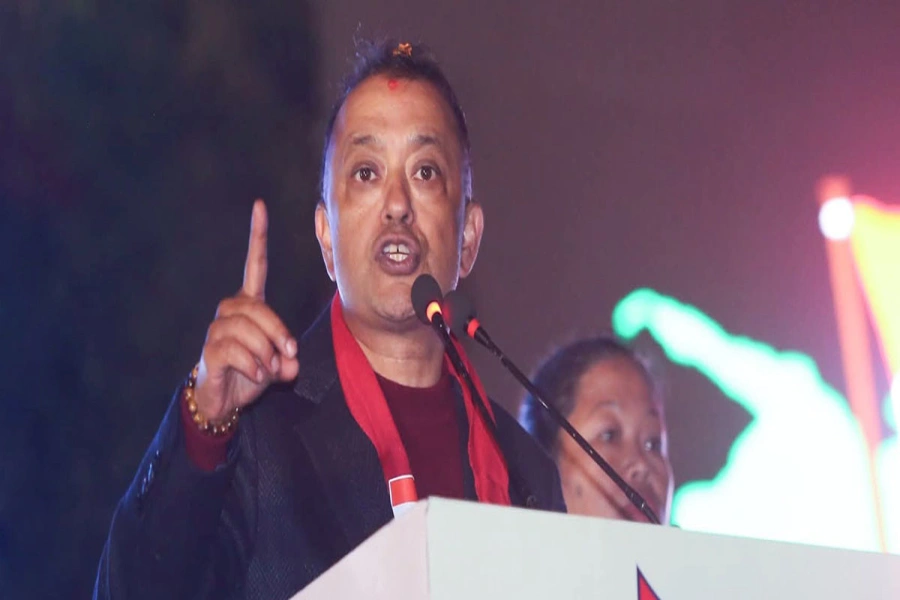KATHMANDU, June 24: The Nepal Communist Party (NCP) appears headed for a major factional realignment as Prime Minister KP Oli seeks to tighten his grip on the party and the government in the backdrop of a raging power tussle.
Fearful of possible setbacks from party rivals, Oli and his aides have been wooing leaders from other factions to boost his strength in the party’s key committees ahead of the party’s first general convention expected to take place in the next one year.
Fresh doubts have emerged over the longevity of the all-powerful Oli government after NCP Co-Chairman Pushpa Kamal Dahal earlier this month said that he expected Oli to rotate the second half of the government’s five-year tenure as per ‘a gentlemen’s understanding’ reached between the two leaders before the merger between the two parties. He had also hinted that he could support Oli for a full five-year term if there is consensus.
Although many believe that Dahal may be bargaining for party leadership, Dahal’s remarks have sent shockwaves in the party. Since Dahal’s remarks, Oli and his aides have reached out to several influential leaders from the erstwhile CPN (Maoist Center) including home minister Ram Bahadur Thapa for support, party sources said.
China confirms will amend party constitution, likely to include...

Oli’s attempts to consolidate grip on the party come at a time when Dahal is reaching out to other smaller factions to resist Oli’s attempt to corner them in the party and the government.
Oli, despite being the most powerful leader in the party, could find himself in trouble if other factions ganged up on him, a scenario many in NCP say is inevitable if Oli tried to stick to the government and the party leadership.
Dahal, who commands the loyalty of NCP senior leaders including Bamdev Gautam and Jhalanath Khanal, has been trying to forge unity with senior leader Madhav Nepal, by setting the differences aside.
Leaders said that Nepal, himself a contender for the post of chairman, is emerging as the decisive factor amid an intensifying power struggle between Oli and Dahal.
So far, Nepal has been maintaining equidistance with both leaders hoping favor from both leaders. He has been supporting or opposing them on the basis of agendas. In the matter relating to the government’s performance, Nepal appears much softer compared to Dahal who has been heavily critical of Oli government’s performance in the recent months. He, however, shares a common position with Dahal on works related to truth and reconciliation.
During a meeting on Saturday, Nepal had criticized the government over delays in the truth and reconciliation process.
“These issues (related to the transitional justice) should be wrapped up at the earliest,” a leader present at the meeting quoted Nepal as saying. Nepal was voicing support to leaders of the erstwhile Maoist party who suspect that Oli might be using transitional justice as a bargaining chip to remain in power.
In the wake of the infighting, the party is struggling to conclude the remaining work of unification that is pending for months. Leaders haven’t been able to forge consensus on key issues including a political and ideological line of the unified party.
Leaders say that Dahal looks particularly reluctant to take forward the unification work. He, according to his aides, wants the government to first conclude the truth and reconciliation work before completing party unification.
“We want to see all issues related to power-sharing and peace process settled before the unification,” said Mani Thapa, a leader close to Dahal.





































